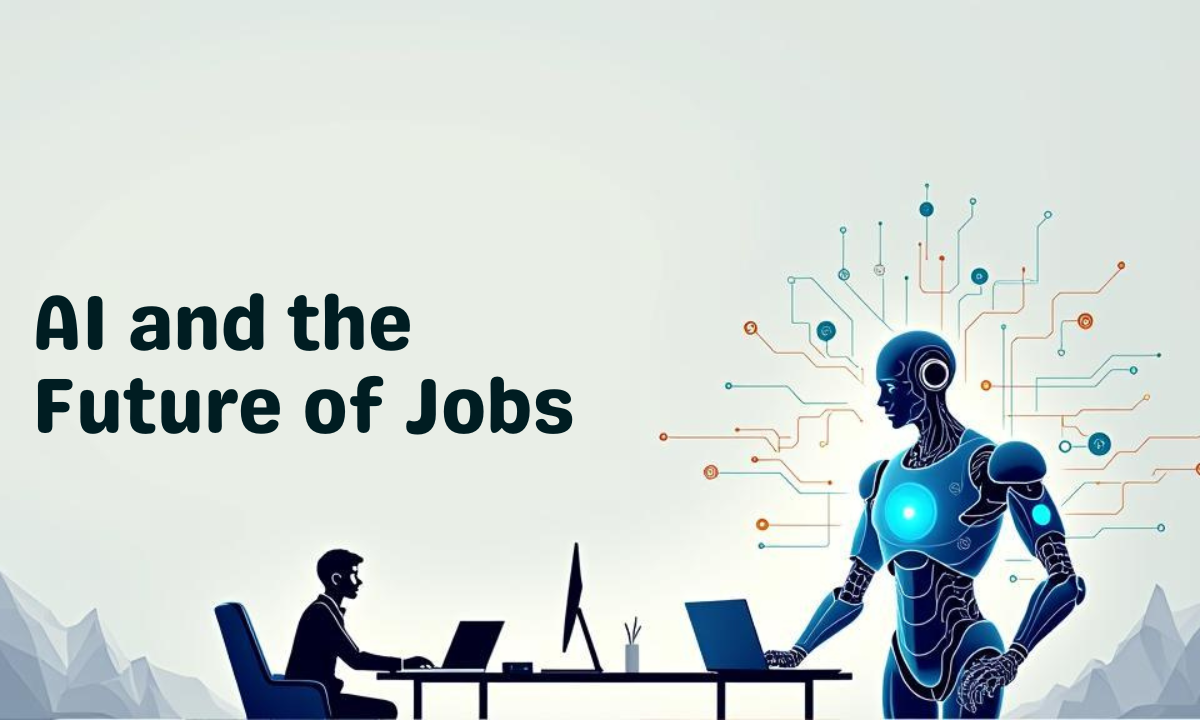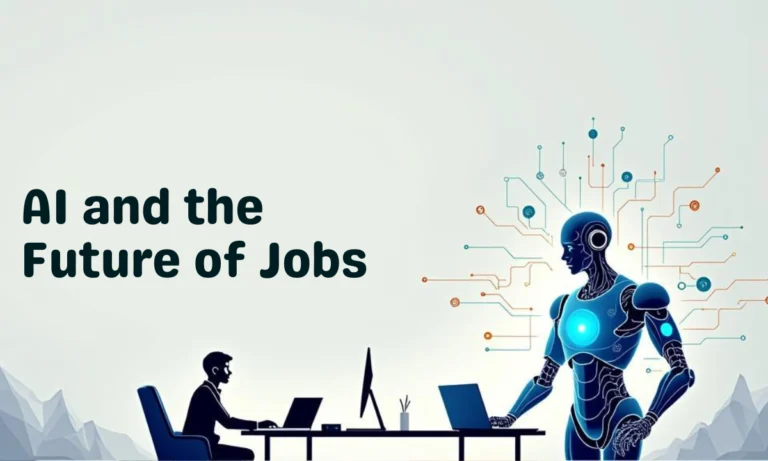Artificial Intelligence (AI) is no longer a futuristic concept—it’s already changing the way we live and work. From automating repetitive tasks to assisting in decision-making, AI is reshaping industries at lightning speed. But what does this mean for the workforce? Will AI take over jobs, or will it create new opportunities? Let’s explore how AI will influence jobs and the skills we’ll need in the future.

AI and Job Transformation: Threat or Opportunity?
One of the biggest debates around AI is whether it will replace human workers. The truth is more nuanced:
Automation of repetitive tasks: AI can handle routine activities like data entry, scheduling, and basic customer support.
Creation of new roles: As AI evolves, demand will rise for professionals in AI development, data science, cybersecurity, and ethics.
Shift in job requirements: Instead of eliminating jobs entirely, AI will transform how they’re performed, requiring humans to adapt and upskill.
In short, while some roles may decline, others will emerge—making adaptability the key to staying relevant.
Jobs That Will Evolve With AI
Healthcare Professionals – AI assists doctors with diagnosis, medical imaging, and predictive analytics, but human empathy and expertise remain irreplaceable.
Teachers & Trainers – AI can personalize learning, but educators will guide students in critical thinking and creativity.
Marketing & Sales Experts – AI-driven analytics provide insights, while humans focus on strategy, storytelling, and relationships.
Customer Service – Chatbots will handle simple queries, while complex problem-solving still requires human support.
Skilled Trades – Electricians, plumbers, and mechanics will increasingly work alongside AI-powered tools rather than being replaced.
Essential Skills for the AI-Driven Future
To thrive in the AI era, workers will need to focus on skills that complement technology:
Digital Literacy: Understanding AI tools, data analytics, and cloud platforms.
Problem-Solving & Critical Thinking: Humans excel at thinking outside the box, something AI still struggles with.
Creativity & Innovation: AI can process information, but originality comes from people.
Emotional Intelligence (EQ): Empathy, leadership, and teamwork will remain vital.
Adaptability & Lifelong Learning: Rapid tech changes demand continuous upskilling.
Industries Most Impacted by AI
Finance: Fraud detection, risk analysis, algorithmic trading.
Healthcare: Predictive diagnostics, drug discovery, robotic surgeries. “AI is revolutionizing healthcare with predictive diagnostics, robotic surgeries, and personalized treatment. Learn more in our dedicated post on AI in Healthcare.”
Retail & E-commerce: Personalized shopping, supply chain automation.
Manufacturing: Smart factories, predictive maintenance.
Transportation: Autonomous vehicles, traffic management.
Will AI Replace Humans at Work?
AI will replace tasks, not entire professions. The jobs of tomorrow will be more human + AI partnerships, where technology handles efficiency while people focus on creativity, strategy, and emotional connection.
Instead of asking “Will AI take my job?”, the real question is “How can I use AI to improve my job?”
Conclusion: Embrace the Future of Work
FAQs on The Future of Work and AI
1. Will AI replace jobs in the future?
AI will automate repetitive tasks but not entire professions. Instead of eliminating jobs, it will transform them, creating new opportunities in fields like AI development, data science, and AI ethics.
2. What jobs will be most affected by AI?
Jobs in customer service, data entry, manufacturing, and logistics will be most impacted by automation. However, roles requiring creativity, problem-solving, and emotional intelligence will grow in demand.
3. What skills are needed for the future of work with AI?
The most important skills include digital literacy, problem-solving, creativity, emotional intelligence, adaptability, and lifelong learning. These skills complement AI rather than compete with it.
4. Which industries will AI transform the most?
AI will heavily impact healthcare, finance, retail, transportation, and manufacturing through automation, predictive analytics, and smart systems.
5. How can workers prepare for an AI-driven future?
Workers can prepare by embracing upskilling and reskilling programs, learning digital tools, staying updated with AI advancements, and developing human-centric skills like leadership and collaboration.






